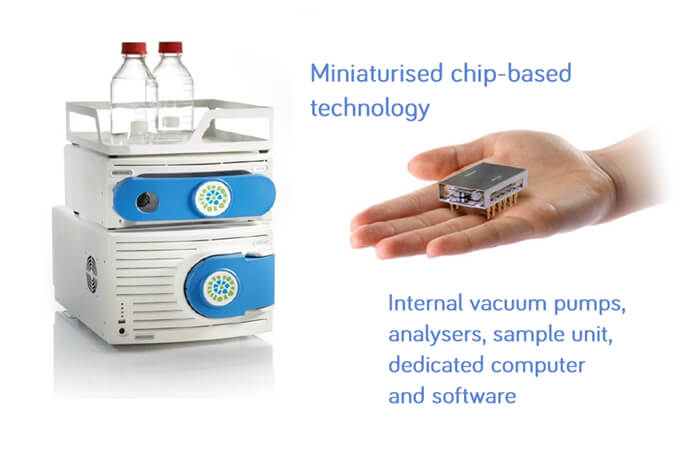Real-time compact mass spectrometers provide both product and process information for a complete, fast picture of bioprocessing, at a reduced cost to traditional QbD and PAT methods. Miniaturised mass spectrometry specialists, Microsaic, discuss the analysis of storage conditions on the quality of monoclonal antibodies using a miniaturised mass spectrometer.
For any monoclonal antibody to be efficacious and safe, it is important that the molecule remains stable from the time it's produced until it is used. Although freezing has been the preferred method of storing proteins in bioprocessing industries (1, 2), it has also been identified as the cause of ice-water surface denaturation, cryoconcentration and cold denaturation of proteins over time (3). The drug substances sometimes need to be stored for extended periods before conversion into drug product . At around 200 K, proteins undergo Glass transition below which most of the protein's functions are altered (4). Glass transition is a phenomenon that occurs at lower temperatures as the result of change in dynamic behaviour of individual protein and viscosity during glass formation.






